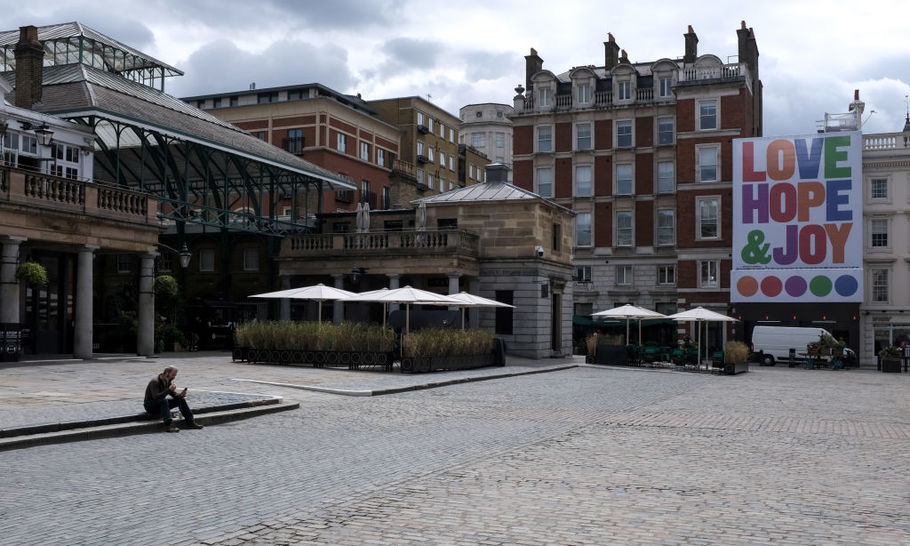Could Covid fix Britain's productivity problem?

(Photo by Alberto Pezzali/NurPhoto via Getty Images)
The Bank of England’s Chief Economist, Andy Haldane, received a lot of media attention last week for suggesting that the UK economy might be picking up more strongly than the Bank had expected. This, he said, was consistent with a V-shaped recovery from the Covid crisis.
I was quite sympathetic to Andy’s idea, as I have seen the same evidence. The recession we have been through was unlike anything in living memory, because it was induced by a deliberate government decision to close down activity. It is quite feasible that government decisions to “unclose” parts of the economy will allow for a recovery that’s just as sharp as the initial downturn.
As Andy pointed out, the evidence is supportive. From a lot of reliable indicators, here in the UK and overseas, the signs are clear. The monthly “Purchasing Managers Indices” (PMIs), which give an indication of market conditions, are especially indicative of a V, as are some others. Another unique aspect related to the nature of this crisis, is that savings rates have risen sharply in many parts of the world, including the US, continental Europe and here in the UK. Consumers might soon start spending this money. What is also intriguing, is many indicators of housing activity suggest an upswing for the housing market.
In a recent piece for “Project Syndicate” I set out evidence from around the world that suggests that the economic outlook is encouraging. All prediction is dangerous, but these same indicators were accurate back in March and April when most of them fell precipitously. Even so, many of these indicators have only a short term predictive value. The contagious nature of Covid-19 and the absence of any cure means they could all turn downwards if countries go back into lockdown It is also true that though these indicators support the notion of a V-shaped recovery, this says nothing about the quality or fairness of such a recovery.
There is one specific aspect that sits oddly with all this — the persistent emptiness of our city centres. I visited central London the day after Haldane’s speech for the first time since March 19th, and I was shocked at how quiet it was. This is down to the “work from home” put in place by the companies that dominate the central London office space. But now there are plenty of signs that for many companies, this could be a new permanent way of life. It might suit a lot of their employees to work that way, and it also saves the companies a huge amount of rent. Until there’s a vaccine we won’t know what attitudes will prevail, especially among younger workers, who tend to share flats. Many of them could be eager to get back to the office.
What seems clear is that if many large office-based employers don’t return to their past ways, then it will be exceptionally difficult for large swathes of the service support economy, such as takeaway cafes, pubs, many restaurants and so on, to survive. (And this is not even taking the world of live music and theatre, and business travel into consideration).
So how can a “V” remain a “V” beyond a few months? The probable answer is: it can’t.
Other parallel shifts are taking place. Just as the central London (and probably elsewhere) economy is struggling, the suburban economy is booming, with all those office workers successfully functioning from home. Their local services are thriving. And could it just be that this turns out to be more productive, as all that time commuting is time saved more for leisure. Dare I raise the possibility that this might be the beginnings of the productivity upturn, that has been evaded us for so long, despite all the technological advances of the modern world.
The same goes perhaps for business travel. Perhaps this pandemic means a lot of people will simply not need to travel vast distances for meetings that could have been done via Zoom all along. It will hurt some airlines, and some meeting room providers too — but not our overall productivity. As for personal travel, judging from the noises coming out of travel operators, despite all the risks, a lot of people are booking foreign holidays.
It is impossible to know whether these shifts are permanent or not. Only when we have a vaccine will the scale of the changes become clear. But maybe — just maybe — we aren’t letting a crisis go to waste.





